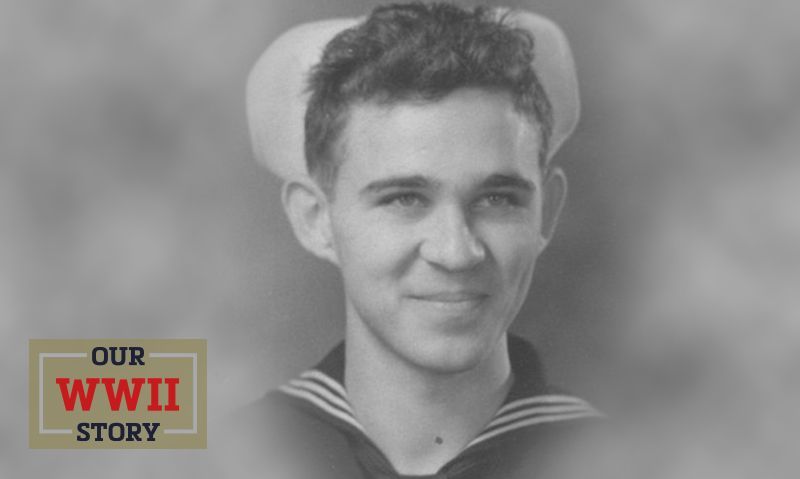
Douglas Perret Starr, a member of American Legion Post 15 in Sioux Falls, S.D., provides an account of the 1945 battle.
Douglas Perret Starr, a member of American Legion Post 15 in Sioux Falls, S.D., was a sonarman second class in the U.S. Navy during World War II. He submitted the following account of the 1945 Battle of Corregidor.
“The taking of Corregidor was interesting and different, particularly from a sailor’s viewpoint. We were not involved in ground fighting or hand-to-hand combat – we never saw any Japanese close up – but we did see quite a bit of action, and quite a bit of different action. It took us four wearying days, 13-16 February 1945.
After the landings at Lingayen Gulf – my ship Nicholas had led a 550-ship armada with Gen. Douglas MacArthur in the cruiser Nashville – we stood south to bombard and retake Manila Bay: Bataan, Mariveles, Carabao, El Fraile and, of course, Corregidor.
Our destroyer task group was based in Subic Bay, two hours up the west coast from Manila Bay. At 0330 each day for four days, we stood out of Subic Bay and steamed south, arriving in Manila Bay just before dawn. Our task was to soften up Corregidor as much as possible before the paratroopers went in for the final clean-up. I did not envy them.
While in Manila Bay around Corregidor, our speed changed from slow to fast depending upon the maneuver we were conducting; slow to taunt the Japanese gunners into shooting, and fast to get out of the way of something.
When we went into battle, our shirts were buttoned up to the neck and our sleeves were rolled down, all to prevent flash burns in case of a bomb. We wore helmets and life jackets. In those days, no Kevlar vests.
We bombarded Corregidor as long as it was daylight. For two days, Nicholas and others steamed close to the cliffsides, point-blank-range close, to draw Japanese fire from the tunnel openings. The idea was to find the guns and silence them. But we had to give the Japanese first shot.
The scheme worked. We were shot at continually, and we silenced quite a few of those cliffside guns.
Several destroyers hit mines or were hit by shells, putting them out of action. We were shot at, but not hit, although one near-miss wounded a seaman in the throat. He underwent surgery to remove the shrapnel and recovered nicely. I saw him 50 years later at a reunion in Baton Rouge, La. to celebrate the 50th anniversary of the end of the war, and he was fine. A lot older, but he looked pretty much the same. All in all, Nicholas led a charmed life during World War II: only two were killed (one was a sonar operator, who I replaced) and several were wounded from a bomb during an air raid in the Solomon Islands in 1943.
Because Corregidor was a continuing fight, we stayed at battle stations all day. We took individual breaks for meals and toilet. Breakfast and supper were served during the two-hour run between Subic and Manila. Dinner was not served as such. Each unit in the ship - gun, radar shack, radio shack, bridge, engine room and so on – sent one or two men at a time to eat. We ate in a hurry and hastened back to our battle stations. My battle station was on the bridge – guarding against Japanese submarines – so I was witness to much of the action.
At the end of the day, an hour or so after sunset, we steamed north to Subic Bay, arriving at 2200. It was no time for rest. We had to refuel and replenish ammunition for the next day’s action. Never go out unless fully loaded. As a result, we hit the sack about 0100 for an all-too-brief two- to three-hour sleep.
None of us ate well, of course, and I don’t remember showering during those four days. I didn’t want to give up my sleep time. Besides, no one cared what we smelled like; we always smelled of sweat and diesel-fuel smoke anyway.
On the fourth day the paratroopers dropped in, and the fight was over. Nicholas was assigned to other islands.
Before Corregidor, Nicholas had also participated in the Leyte Gulf action. After, it participated in the landings at Zamboanga, Cebu, Borneo and Okinawa, and finally the Japanese surrender in Tokyo Bay.
- Honor & Remembrance

